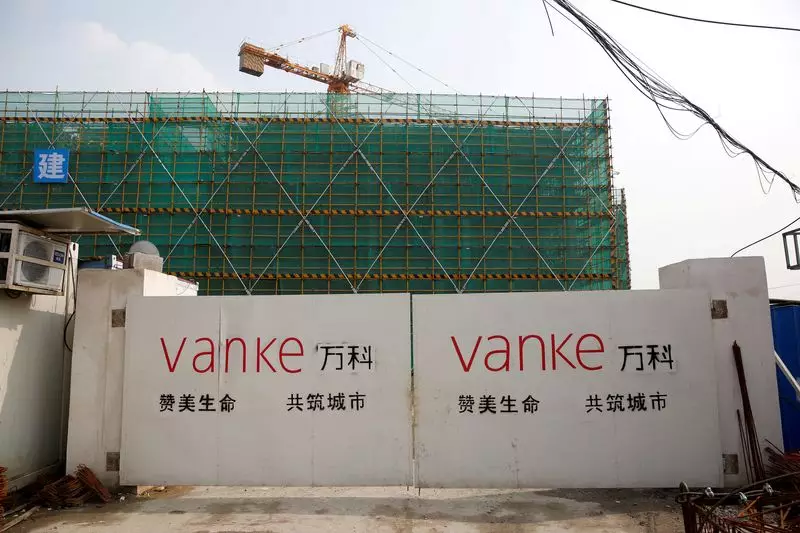The Chinese real estate market has been embroiled in a severe liquidity crisis for several years. As authorities have consistently attempted to navigate these turbulent waters, recent developments surrounding China Vanke—a key state-backed developer—signal that a more direct approach from the government may be imminent. The urgency of this situation is underscored by the distinct deterioration in Vanke’s financial health, leading to renewed fears about its ability to meet debt obligations, particularly as looming repayment deadlines approach. This crisis has persisted for nearly five years, driven by a combination of regulatory measures, economic pressures, and the broader fallout from the defaults of other major developers like China Evergrande.
Vanke’s troubles became particularly pronounced following a recent media report suggesting that its CEO had been detained, raising suspicions of a potential takeover or corporate restructuring. Although the report was retracted shortly after publication, it ignited concerns among stakeholders regarding the company’s stability. As of June 2023, Vanke’s interest-bearing debt was staggering at 331.3 billion yuan (approximately $45.21 billion), a figure that raises alarm bells about its capacity to navigate the current crisis without outside assistance. This situation is exacerbated by the company’s troubling sales trajectory and the downgrades it received from global rating agencies, which have categorized it deeper into junk status.
In contrast to the earlier perception that Vanke was somewhat insulated from the broader property market turmoil, the reality now suggests otherwise. Analysts warn that if Vanke were to default, it could severely undermine homebuyer confidence that had shown signs of stabilization. As one of the most iconic names in China’s real estate sector, any failure on Vanke’s part could lead to a cascading effect across the industry, further constraining access to financing for other developers who have so far managed to avoid defaults.
The ongoing crisis raises a critical question: will the Shenzhen government and other authorities intervene decisively to rescue Vanke? It appears that local officials are already engaging in discussions with state enterprises regarding potential strategies to mitigate the company’s debt risks. Despite the capital-intensive nature of real estate, state involvement could play a crucial role not only in preserving Vanke but also in stabilizing the broader market. The potential for a state takeover has been floated as a remedy—even though it would mark an unprecedented shift in approach for Beijing, which has typically shied away from direct bailouts to avoid moral hazard.
Analysts have suggested that a “clear government bailout” of Vanke could represent the best-case scenario, showcasing the government’s commitment to providing a safety net for the property sector. This intervention could manifest in various forms, such as assurances of funding access or support through asset acquisitions by other state-owned enterprises. Given Vanke’s significance in the market, it’s logically assumed that local government attempts to stabilize the firm’s finances would be vigorous.
Looking ahead, without a significant influx of fresh liquidity, experts are bracing for a possible default from Vanke this year. Its monthly sales have plummeted to levels that are insufficient to cover operational costs, heightening the urgency for intervention. Some insiders suggest that even if a government rescue occurs, it may not inject new capital; rather, it could facilitate the strategic sale of assets or bolster lending channels to keep the company afloat.
Ultimately, the implications of Vanke’s struggles are profound. Should the company falter, it would not only jeopardize its own operations but also undermine the stabilizing efforts the Chinese government has endeavored to implement over the past several years. The continuing saga of Vanke serves as a litmus test for the Chinese authorities, whose responses may redefine the dynamics of property development and financial stability in the country.
As the Chinese property market faces renewed challenges, the central question remains: how far will the government go to avert a crisis of confidence that could ripple through the economy? The answer may set the course for the future of real estate in China and, by extension, its broader financial landscape. As the situation unfolds, all eyes will be closely monitoring Vanke’s movements and the potential interventions from the government that lie ahead.

